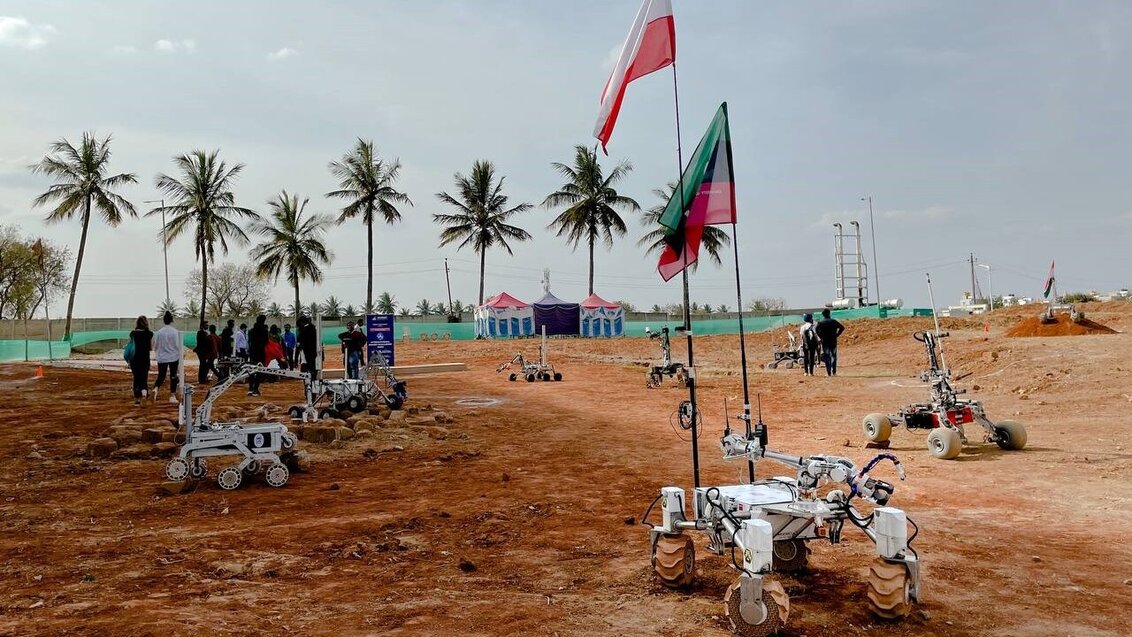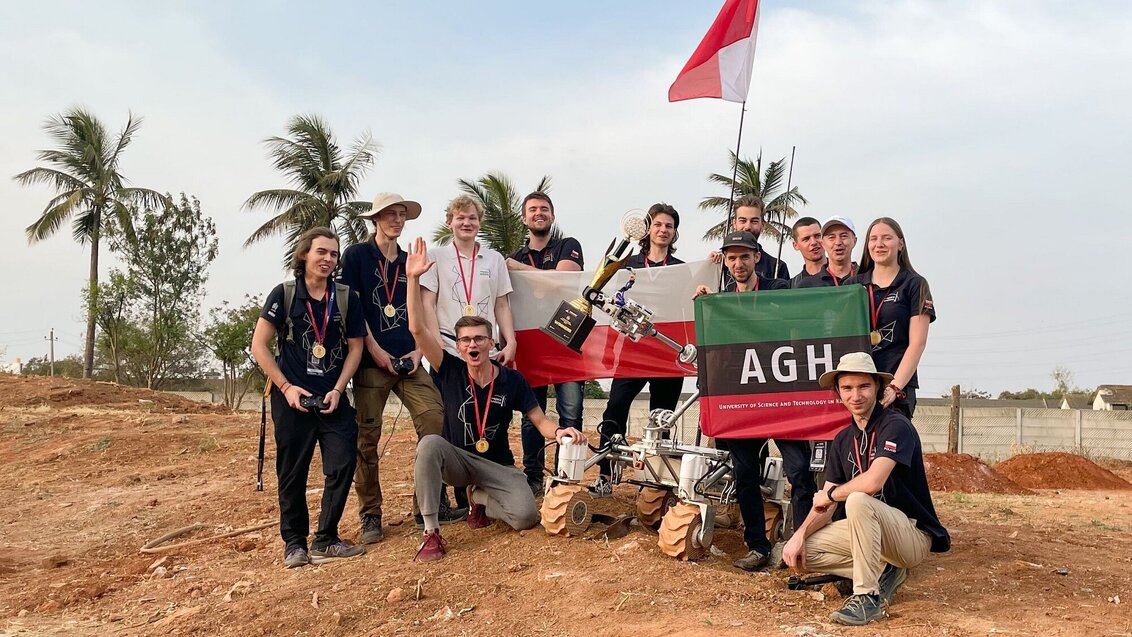After four days of competition, the results of the general classification of the International Rover Challenge 2023 in India were announced. AGH Space Systems proved the best, beating 17 teams from around the world in the grand finale! The Asian IRC is one of the largest student planetary rover and space robotics competitions in the world.
The part of AGH Space Systems responsible for the rover has been preparing for this challenging competition for months. IRC India is part of the series of international robotic competitions – Rover Challenges, but the Asian variant differs from the contests on other continents. To successfully complete all the tasks prepared by the organisers, the rover must have been seriously modified, and the team had to adjust its capabilities to the challenging missions. The AGH UST students implemented neural networks and a system for mapping the area in 3 dimensions; they adjusted the shape of the gripper used to transport particular objects and collect soil samples; and they completely transformed the on-deck laboratory used during the science mission.
The first task was the Astrobiology Expedition. The judges marked several spots to be investigated; the machines had to collect soil samples and analyse them to check for any life forms. The results of the analysis were to be presented to the judges later.
Another challenge was the Instrument Deployment and Maintenance Operation. The operators, using only the image from cameras mounted on the gripper and mast of the rover, had to use the 6DOF manipulator to operate a bunch of buttons, switches, and knobs on a special operating panel, as well as to put a designated object in a drawer. Then, maneouvering the rover, they searched the Mars-like surface and precisely positioned the discovered objects in spots marked by the judges.
Subsequently, our students had to face the Autonomous Expedition challenge. In this task, the rover had to drive autonomously through an unknown plot of land, where the only indicators were black arrows. The robot had to remember the direction the arrow was pointing and reach the next one, navigating obstacles thrown in its way. In this challenge, autonomous navigation algorithms and precise location sensors played a crucial role. Although unexpected technical problems prevented Kalman from finishing the drive, the judges recognised the knowledge of the AGH UST students and granted them the maximum number of points for presenting the implemented solutions.
The team also had to give a presentation about project management, the engineering solutions applied, and ideas for the commercialisation of the planetary rover, assuming that the colonisation of the Red Planet has already begun (Project Implementation Management Assessment).
The final task was called Reconnaissance and Delivery Operation. Using rover cameras and an application to visualise the technical condition of the rover, the operators had to navigate the robot so that it could find hidden objects, photograph them, and then, using its gripper, deliver them to a marked location.
‘Hard work brought the expected results and now we can fully celebrate the victory of our team. We always put our hearts into our projects. However, without the support we received, we would not be able to achieve these results. Thank you for being a part of this journey and we promise that we will provide more and more reasons to celebrate!’, say the members of AGH Space Systems.
It is worth remembering that the team had already won the IRC in India in 2020.
The International Rover Challenge took place in Bangalore between January 28 and 31, 2023.
Photo: AGH Space Systems


 Pre-election meeting with a candidate for the position of rector
Pre-election meeting with a candidate for the position of rector  Agreement on cooperation with OPAL-RT
Agreement on cooperation with OPAL-RT  Krakow DIANA Accelerator consortium members with an agreement
Krakow DIANA Accelerator consortium members with an agreement  Meeting with the Consul General of Germany
Meeting with the Consul General of Germany  More Academic Sports Championships finals with medals for our students
More Academic Sports Championships finals with medals for our students  Bronze for our swimmers at Academic Championships
Bronze for our swimmers at Academic Championships  Smart mountains. AGH University scholar develops an intelligent mountain rescue aid system
Smart mountains. AGH University scholar develops an intelligent mountain rescue aid system